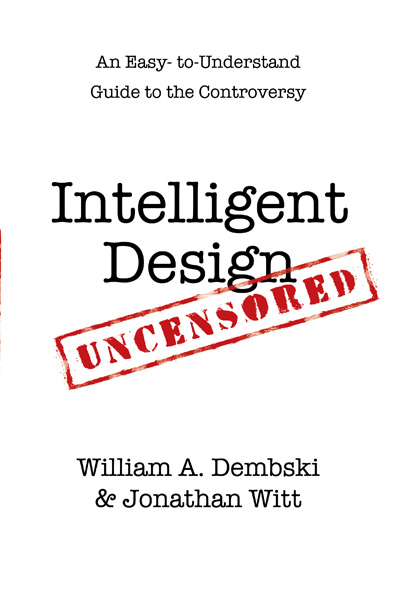The following two books are complete and will be out early next year:
 …
… ![]()
The first is coming out with InterVarsity, the second with Baker. They’ll serve as a nice counterblast to the theistic evolutionism promoted by Denis Alexander, Karl Giberson, Francis Collins, and others.
P.S. Barbara Forrest in her book against ID complains that I publish too many books. Deal with it Barbara — they sell well and they get read, especially in the Christian community. In any case, Barbara, please make sure to cite these two in your next edition.